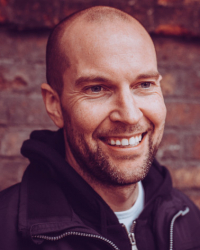3 steps for moving beyond inner criticism & sabotaging behaviour
Nothing derails our plans, objectives or personal relationships like self-sabotaging behaviour. Whether it’s over-pleasing, controlling or avoiding engagement altogether. I’ve been there many times. The plan and intent were good but then something went wrong. My behaviour changed and slowly (sometimes very quickly) I’ve self-sabotaged.

The propensity for success is over before I’ve begun. Sometimes I can feel and see the sabotaging taking place, I just can’t seem to control it. Other times I don’t even realise I’ve self-sabotaged until after the event.
So what is going on?
The mindset fitness training approach Positive Intelligence invites us to consider that our inner judge (inner critic) is behind a great deal of what is taking place. The inner judge is the voice inside us that beats us up repeatedly over mistakes or shortcomings or warns us obsessively about future risks.
Our inner judge is the voice inside us that activates our sabotaging behaviour. For example, our judge telling us we are ‘not good enough’ leads to hyper-achieving or avoidance.
What might be considered to be sabotaging behaviour?
The positive intelligence approach has identified 9 different responses it calls saboteurs. A breakdown summary of each is presented below:
Avoidance
Focusing on the positive and pleasant in an extreme way. Avoiding difficult and unpleasant tasks and conflicts.
Over-controlling
Anxiety-based needs to take charge and control situations and people’s actions to one’s own will.
Hyper-achieving
Dependent on constant performance and achievement for self-respect and self-validation.
Hyper-rationalising
Intense and exclusive focus on the rational processing of everything, including relationships.
Hyper-vigilance
Continuous intense anxiety about all the dangers and what could go wrong. Vigilance that can never rest.
Over-pleasing
Indirectly trying to gain acceptance and affection by helping, pleasing, rescuing, or flattering others. Loses sight of own needs.
Restlessness
Constantly in search of greater excitement in the next activity or constant busyness. Rarely at peace or content with the current activity.
Perfectionism
Perfectionism and a need for order and organisation are taken too far.
Victimhood
Emotional and temperamental as a way to gain attention and affection.
When one or a blend of these behaviours is present the outcome is rarely optimal. Tangible success may still be realised, however at the expense of wellbeing, relationships and performance.
So what do we do?
Here is a three-stage process that can help us flip the script on our inner judge, and saboteurs and choose something better serving.
Stage 1:
Self-enquiry - Pausing, breathing and reflecting. By doing this we increase our chances of capturing sabotaging behaviour before acting it out.
Stage 2:
Triaging - We complete a process to better understand what may be about to happen. Three questions can help us do this.
- What potential sabotaging behaviour, or blend of potential sabotaging behaviour am I presenting with?
- Which person or scenario is currently triggering my potential sabotaging behaviour?
- What is my inner judge saying to me in order to drive the potential sabotaging behaviour?
Stage 3:
Choose a different voice - Finally, we spend time connecting with another internal voice. Our sage (inner leader). Our sage has the energy of expansiveness and lightness. It feels grounded and discerning. It points to opportunities, trust and possibility.
Responding from this we voice are free to move forward with calmness and confidence. This process is a practice. It isn’t that my inner judge won’t be triggered it’s about how quickly I can identify its presence, disarm its influence and choose my behaviour from my sage. From a better-serving component of my psychology.
The outcome:
The potential for us to present with sabotaging behaviour decreases. Our propensity for success increases. Our well-being and integrity stay intact.

Find a coach dealing with Self-esteem
All coaches are verified professionals



